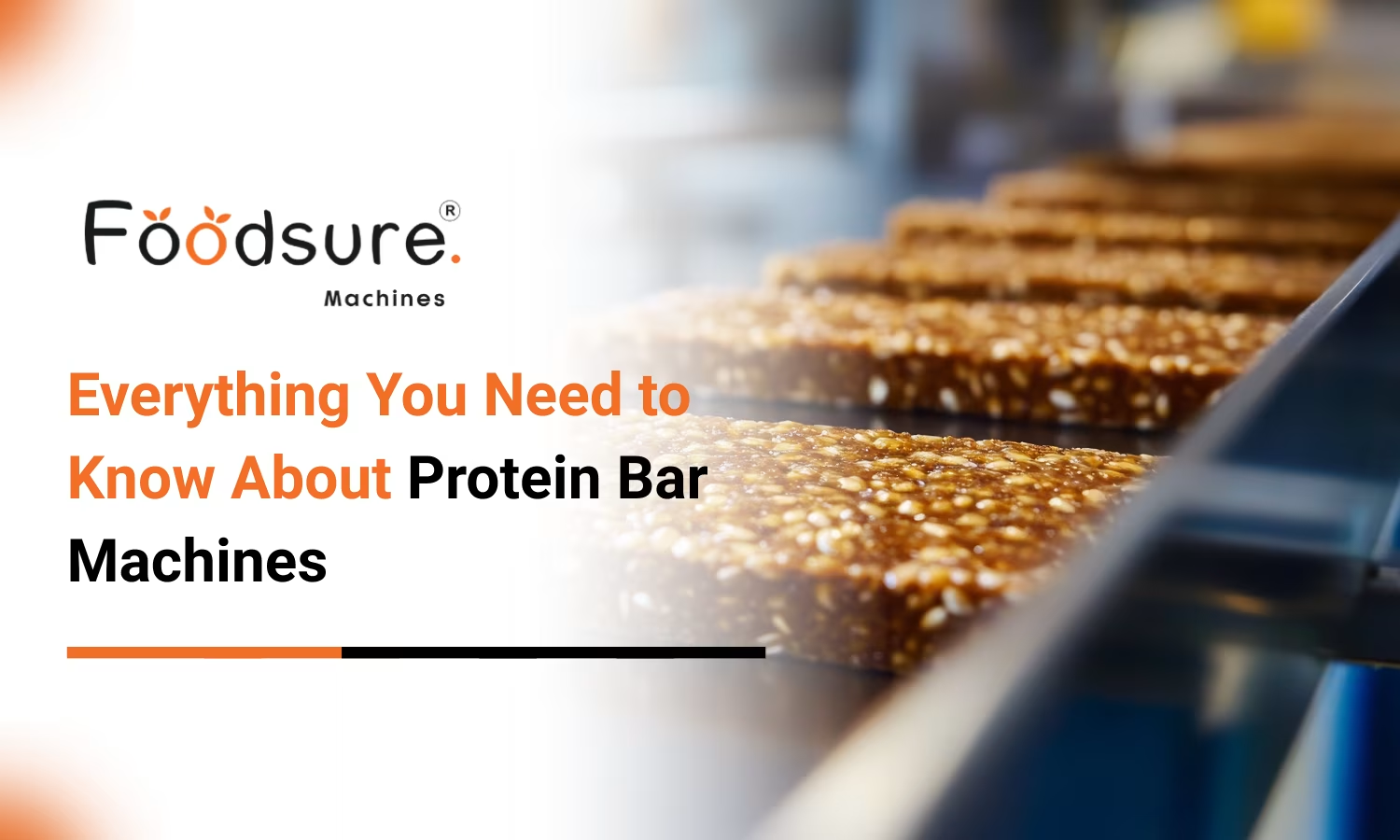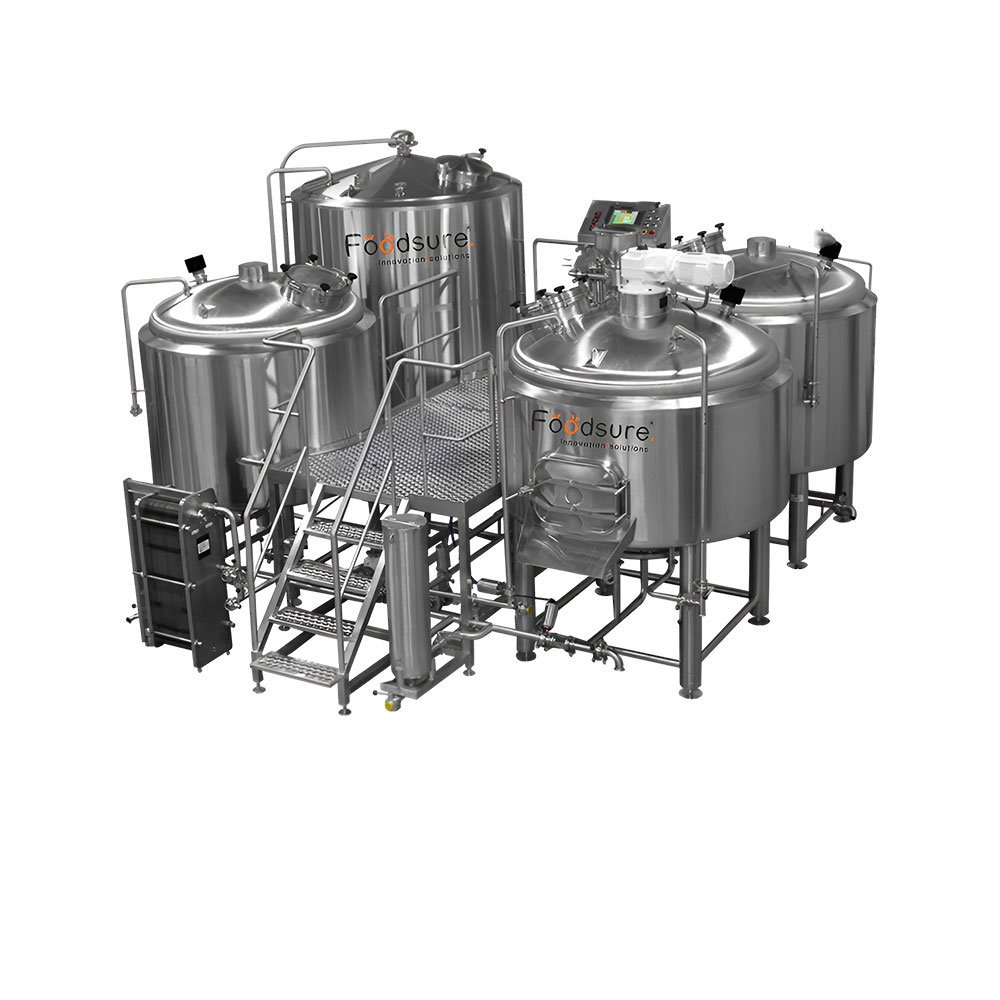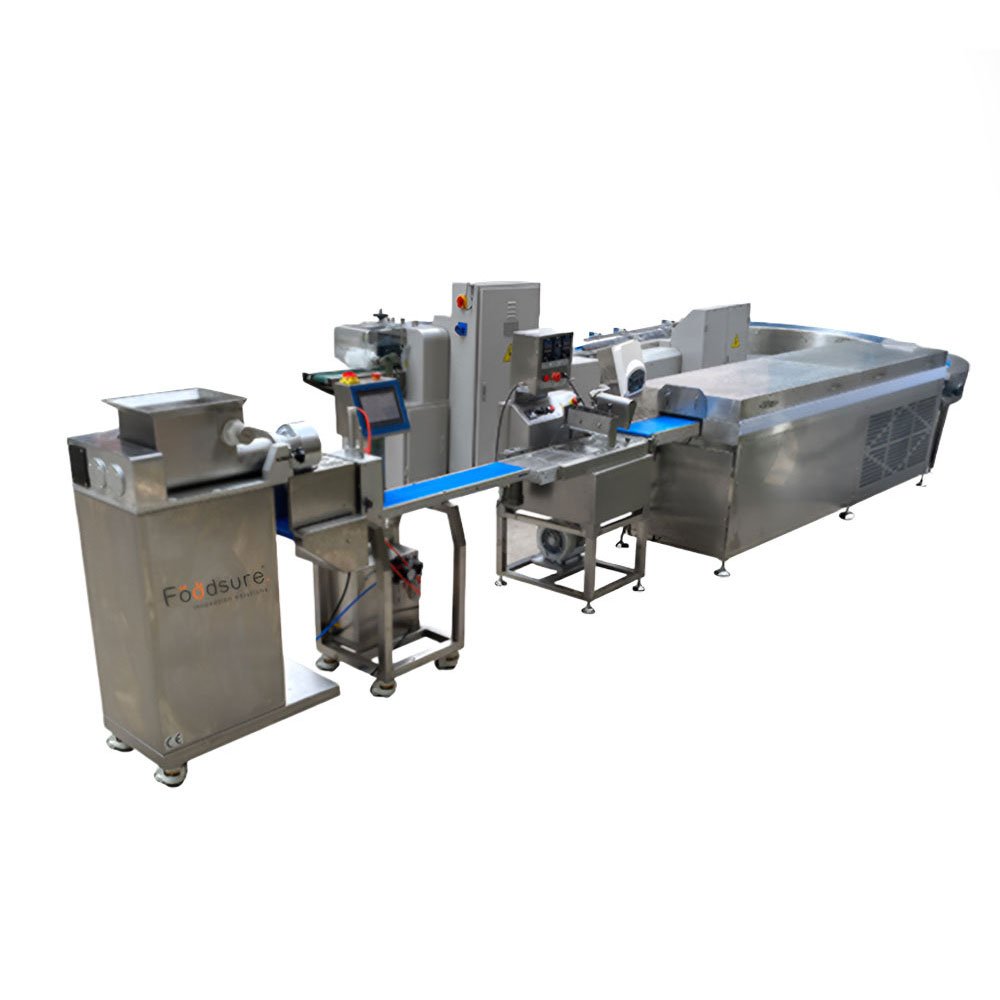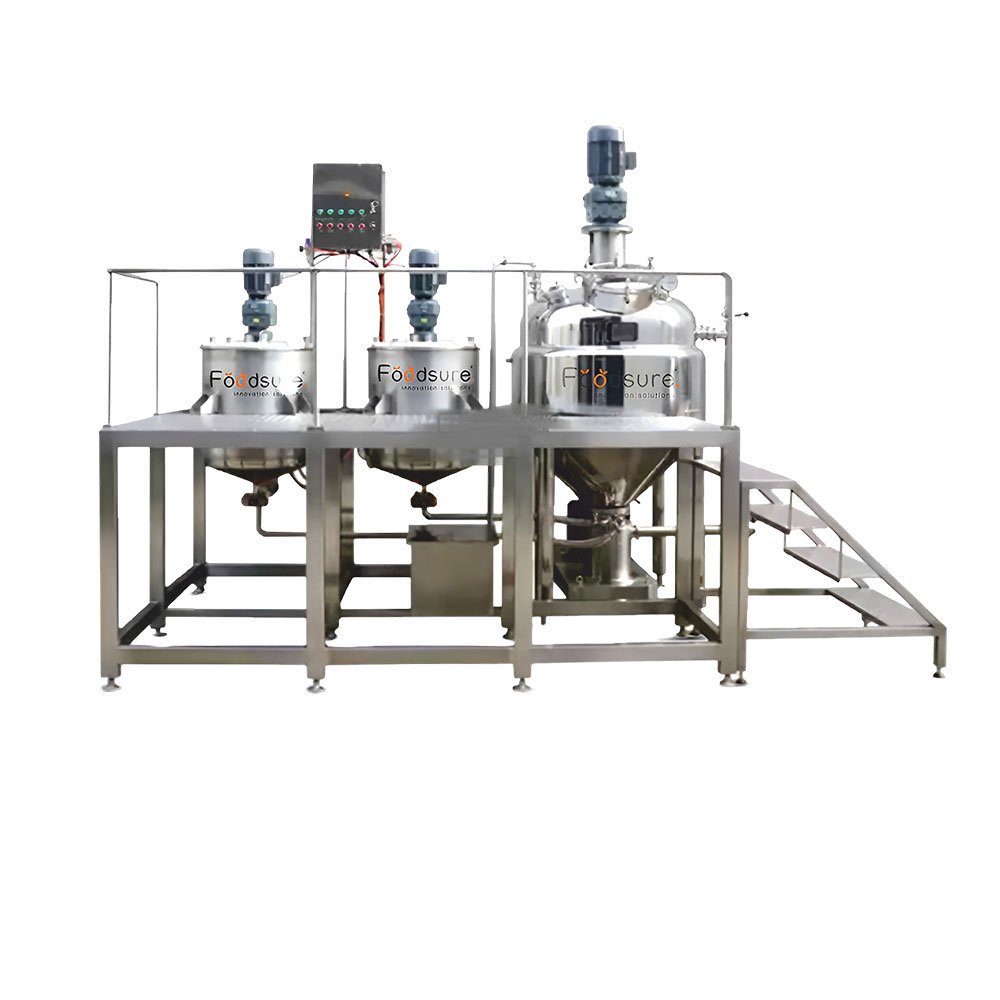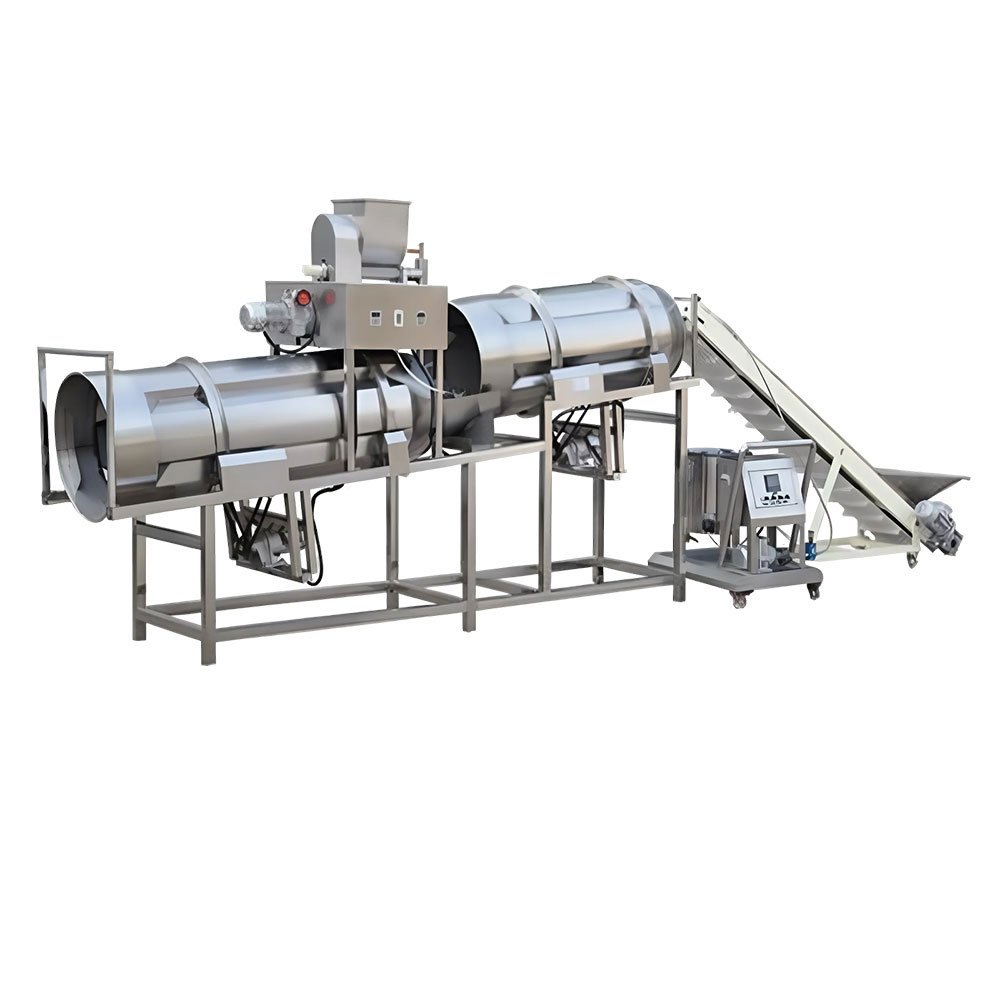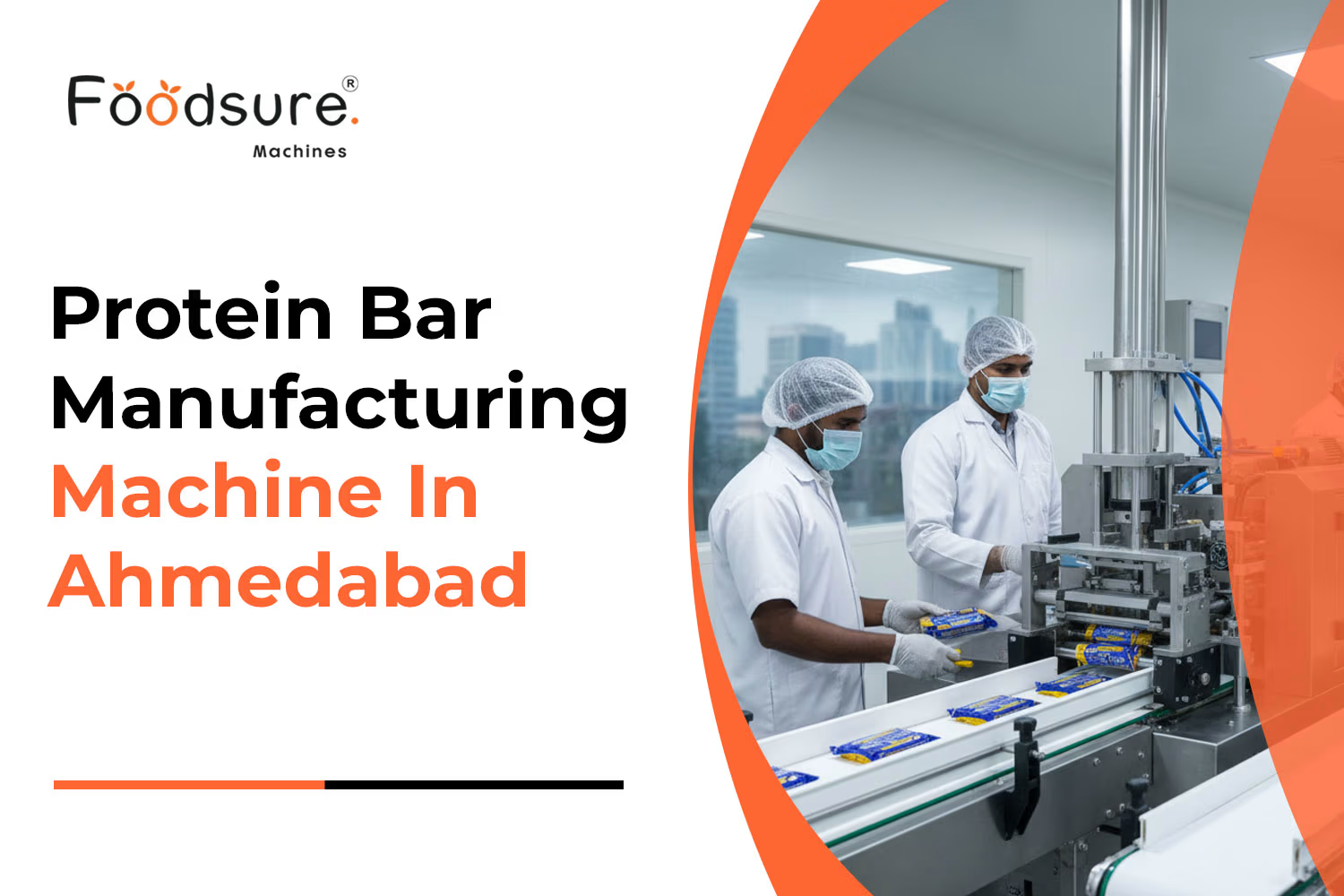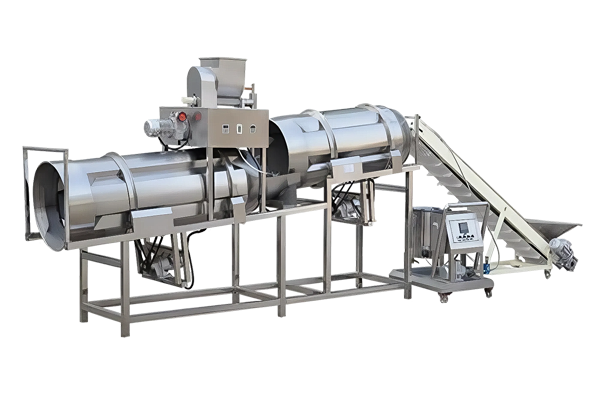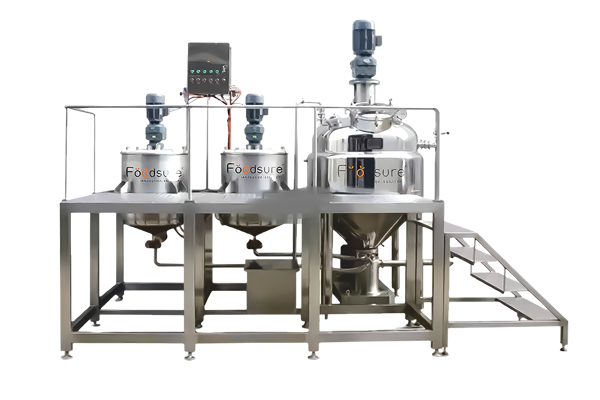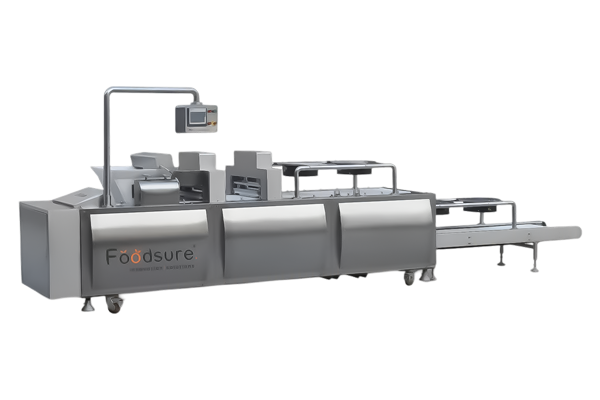Looking to start a protein bar manufacturing business in India? With demand rising fast, investing in the right protein bar machine for small business can help you produce consistent, high-quality bars while keeping labor costs low.
That’s where protein bar machines come in. A protein bar machine for startup business ensure your bars have consistent taste, texture, and nutrition while boosting production speed and reducing labor costs.
In this guide, you’ll discover:
- Which type of protein bar machine fits your business
- How much setup and production really cost in India
- Step-by-step workflow for making high-quality bars
- Tips to scale efficiently while staying FSSAI compliant
Whether you’re starting small or planning to grow quickly, this guide will show you exactly how to make your protein bar business successful.
What Is a Protein Bar? Market Demand in India Explained
A protein bar is an easy and healthy snack option. A macro-dense health snack offering high-quality protein and potentially other ingredients like nuts, seeds, dried fruit, oats, fiber, and healthy fats. Packaged with the factor of all ingredients combined. It is considered energizing for exercise, meal replacement, and providing an increase in nutrition during busy workdays.
- The protein bar market is expanding in India. In fact, it is on target to reach an estimated USD 1.26 billion by 2030. This amounts to around 6.6% per year over a period of approximately twelve years.
- The increased demand for the product is primarily urban-driven, and consumption is the primary push for growth as gyms and young/new urban professionals look for quick & healthy snacks.
- In addition, you can see the uptake, slowly but surely, of rural India as these consumers join the health & wellness customer segment.
Challenges Every Protein Bar Business Encounters
Small protein bar machine manufacturers in India are experiencing many ongoing issues, which prevent them from developing positively and growing.
- Labor issues: It seems to be a consequence of unskilled labor shortages and high employee turnover. Due to the training costs associated with hand mixing, milling, shaping proteins, and packaging.
- Poor quality: Inconsistent product quality is another problem, as many do not have consistent taste, texture, and proper shelf stability from batch to batch. As a result of biological variation in the starting raw materials and the inability to carry through standard recipes.
- Low productivity: It seems correlated to semi-automated and manual equipment issues. Manufacturers that are working at slower speeds will not grow beyond small-batch manufacturing of protein bars.
Common Problems in Small Scale Protein Bar Manufacturing (And Why Machines Matter)
Purchasing protein bar manufacturing equipment can be very advantageous for small scale protein bar manufacturing, focused on automation and reducing labor costs.
-
Production Quality: The protein bar making machine ensures consistent texture, size, and nutritional values, building trust and supporting brand loyalty.
-
Automation Reduces Labor: Protein bar manufacturing equipment streamlines ingredient handling (mixing, shaping, packaging), boosting efficiency and making it easier to scale without increasing labor costs.
-
Operating Costs: Fixed and operating costs for protein bar preparation are reduced, improving speed, ROI, and time-to-market for growing health snack demand.
How to Choose Between Different Protein Bar Machines
| Feature | Semi-Automatic Protein Bar Machine | Fully Automatic Protein Bar Machine |
|---|---|---|
| Best For | Startups & small-to-medium businesses | Medium to large-scale manufacturers |
| Production Capacity | 100–200 kg/hour | 800+ kg/hour |
| Labor Requirement | Moderate (manual feeding/handling needed) | Minimal (highly automated line) |
| Automation Level | Partial automation | End-to-end automation |
| Process Included | Mixing + forming (some manual packaging) | Mixing + forming + cutting + packaging |
| Consistency | Good consistency | Excellent, batch-to-batch precision |
| Initial Investment | Lower capital cost | Higher capital investment |
| Operational Speed | Moderate production speed | High-speed continuous production |
| Scalability | Suitable for gradual growth | Ideal for rapid scaling & exports |
| Hygiene Standards | Standard food-grade build | Advanced hygienic stainless-steel construction |
| Technology Used | Basic control systems | PLC controls, servo-driven cutters |
| Business Stage Fit | Businesses upgrading from manual production | Established brands expanding production capacity |
If you’re starting a small scale protein bar manufacturing and testing the market, a semi-automatic Protein bar machine for small business keeps investment lower while improving consistency. If demand is already strong or you plan to supply retail chains, a fully automatic protein bar production line gives you the speed and uniform quality needed to scale fast.
Protein Bar Manufacturing Process Step-by-Step
-
Choosing Ingredients: Select protein sources, seeds, nuts, sweeteners, and binding ingredients based on bar type and nutritional specifications.
-
Mixing: Blend ingredients in an industrial food scale mixer for uniform distribution and texture; mold or extrude bars for consistent shape and size.
-
Baking or Cooling: Use the protein bar production line to bake bars for flavor development or cool to stabilize nutritional properties; optionally coat with yogurt or chocolate and add nut/seed toppings.
-
Quality & Packaging: Assess nutrient accessibility, flavor, safety, and shelf-life; package mechanically or with adjustable protein bar production line to maintain freshness, protect against moisture, and enable retail display.
Protein Bar Machine Setup Cost in India: Investment You Need to Know
If you’re planning to invest in a protein bar machine for small business, understanding the total setup cost is essential. The investment depends on machine capacity, automation level, and your production scale. Below is a realistic cost breakdown for starting a protein bar machine for startup business in India.
| Item | Description | Estimated Cost (INR) | Notes |
|---|---|---|---|
| Protein Bar Machine | Small-scale to semi-automatic protein bar manufacturing machine | 2,50,000 – 7,50,000 | Depends on capacity & automation |
| Installation & Commissioning | Setup, calibration, and operator training for the protein bar production line | 20,000 – 50,000 | One-time cost |
| Optional Accessories | Molds, cutters, wrappers, ingredient hoppers for protein bar making machine | 15,000 – 60,000 | Based on production needs |
| Electricity / Power | Monthly power use of your protein bar manufacturing machine | 3,000 – 8,000 | Varies by machine size |
| Labor | Operators/helpers for running the protein bar production machine | 10,000 – 25,000 per month | Small unit estimate |
| Other CAPEX | Tables, storage racks, safety gear for food production | 25,000 – 50,000 | One-time investment |
| Total Estimated Setup Cost | CAPEX + First 3 months OPEX for protein bar machine setup in India | 3,23,000 – 8,93,000 | Varies by scale & location |
The total protein bar machine setup cost in India remains affordable for startups, making it easier to enter the fast-growing health snack market with a small-scale protein bar manufacturing machine.
Conclusions
Foodsure Machines offers Protein bar machine for small business in mind. Our focus is on trustworthiness, ease of use, and consistent output. Our equipment is your way to increase production, exceed the market, while enjoying the profits with little to no stress.
Have a Question? Let’s Connect!
Please reach out to us anytime via phone or email.
FAQs
What is the cost of a protein bar machine in India?
Protein bar machines typically cost between ₹2.5 lakh and ₹7.5 lakh depending on capacity and automation. Learn more about Protein Bar Machine Setup Cost in India.
What production capacity can a small protein bar machine handle?
Small to semi-automatic machines usually produce 100–200 kg per hour, ideal for startups. Explore our guide on Small-Scale Protein Bar Manufacturing Machines.
Is a protein bar business profitable in India?
Yes, growing health demand and premium pricing make protein bars a high-margin product. Read how to start in Protein Bar Business Setup Guide.
Do I need FSSAI approval to start protein bar production?
Yes, FSSAI licensing and hygiene compliance are required for legal food manufacturing. See our article on FSSAI Requirements for Food Processing Units.
What ingredients can a protein bar machine handle?
Machines can process protein powders, nuts, seeds, syrups, oats, and functional ingredients. Check compatible equipment in Protein Bar Production Line Equipment.
What is the difference between semi-automatic and fully automatic protein bar machines?
Semi-automatic machines need some labor, while fully automatic lines handle mixing to packaging with minimal intervention. Compare options in Semi vs Fully Automatic Protein Bar Machines.
How much space is required to install a protein bar machine?
A small production setup can start in 500–800 sq. ft., depending on equipment layout. Plan better with Food Processing Unit Layout Guide.
Can protein bar machines be customized for different bar sizes?
Yes, most machines allow adjustable molds and cutters for various shapes and weights. Learn more about Customizable Protein Bar Making Machines.
How long does it take to install a protein bar production machine?
Installation and training usually take 1–3 days after delivery. Understand the process in Protein Bar Machine Installation & Training.
Where can I buy a reliable protein bar machine in India?
You should choose an experienced food machinery manufacturer offering training and support. Contact us through Protein Bar Machine Supplier in India.

